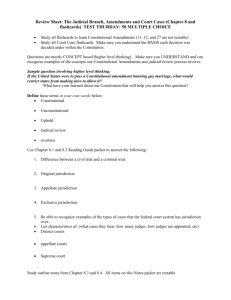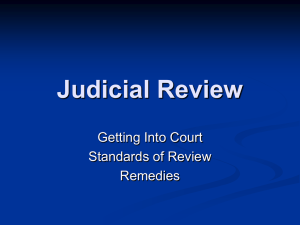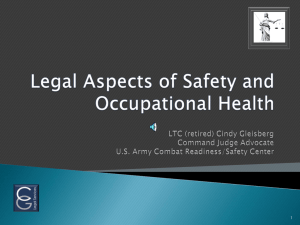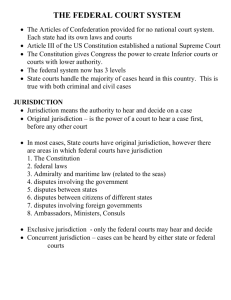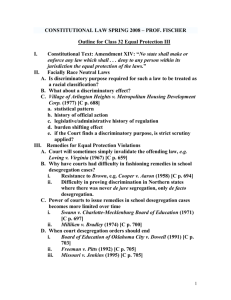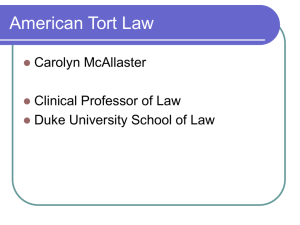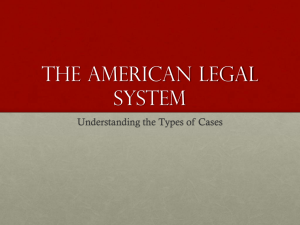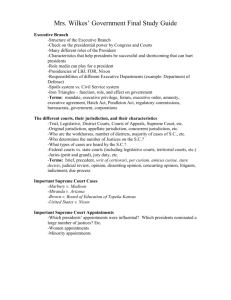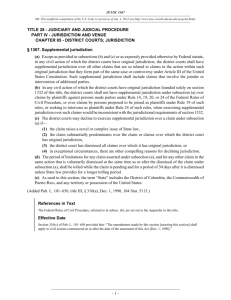Basic Principles of Rule of Law
advertisement
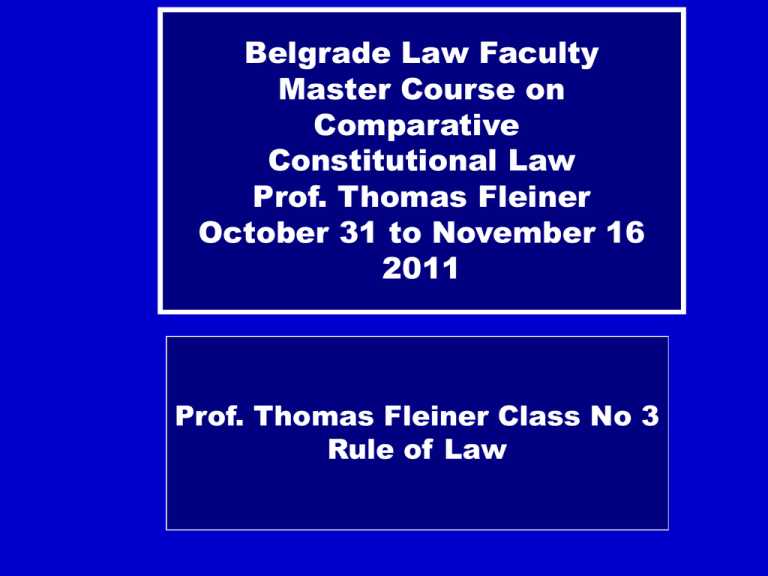
Belgrade Law Faculty Master Course on Comparative Constitutional Law Prof. Thomas Fleiner October 31 to November 16 2011 Prof. Thomas Fleiner Class No 3 Rule of Law Rule of Law Rechtsstaat Etat de Droit What means Rule of Law? Who has to obey the Rule of Law? International Community Rule(s) of Law Rule of Laws Rule(s) of Law(s) States? Citizens? Human beings? What questions need to be asked? If one wants to know how the rule of law is to be applied in the legal system one has to give An answer to the following questions: 1. What are the sources of law and justice? 2. What kind of courts protect citizens from the whim of authorities and administration? 3. Which remedies are available to individuals in order to protect themselves against illegal actions or decisions of authorities? 4. What are the powers and jurisdiction available to courts in order to protect peoples against the misuse of their might? 5. Independence of the courts, nomination, election re-election, impeachment, salaries and education 6. What are the essential criteria‘s courts decide such cases?? 7. What are the rights and obligations of the parties within judicial procedures? Different understanding Of rule of law Common Law USA: European continent Hobbes: Big Bang „That men are ruled by Law and not by men“ Rechtsstaat Etat De Droit Etat Légale Principle of legality Constitution: Protection of Individual rights Foundation of law and justice Hierarchy: To whom God gives an office it Gives him her the brain to decide General will, democracy, voice of the People is the decision of God? Who wins the case has right versus Who has right should win the case Human beings have failures Bases of administrative jurisdiction Control of public law Ultra Vires v. versus legal compliance Authority of administration European Convention on Human Rights Two types of administrative jurisdiction Common Law Civil Law Remedies Administrative act Parties Ministre Juge Contempt of Court quash Reasonableness Due Process Natural Justice Proportionality Etat légale Pre-constitutional Rule of Law and Justice Legitimacy International Constitutional Legal? By executive? Indepen dance Status of courts Jurisdiction Access to. justice remedies Legitim. Fact finding impartial Position of Judges education attorneys education In the determination of his civil rights and obligations or of any criminal charge against him, everyone is entitled to a fair and public hearing within a reasonable time by an independent and impartial tribunal established by law. Judgment shall be pronounced publicly by the press and public may be excluded from all or part of the trial in the interest of morals, public order or national security in a democratic society, where the interests of juveniles or the protection of the private life of the parties so require, or the extent strictly necessary in the opinion of the court in special circumstances where publicity would prejudice the interests of justice. Constitutional Disputes in the UK in 17th century From Magna Charta to Habeas Corpus King in Parliament versus Common Law Separation of powers and Rule of Law American development Fundamental rights against colonialism Inalienable rights Constitutional Jurisdiction France Human rights have to set up new society Sovereignty of the Nation Limits of separation of powers Nation as fountain of justice Rule of Law versus general will
